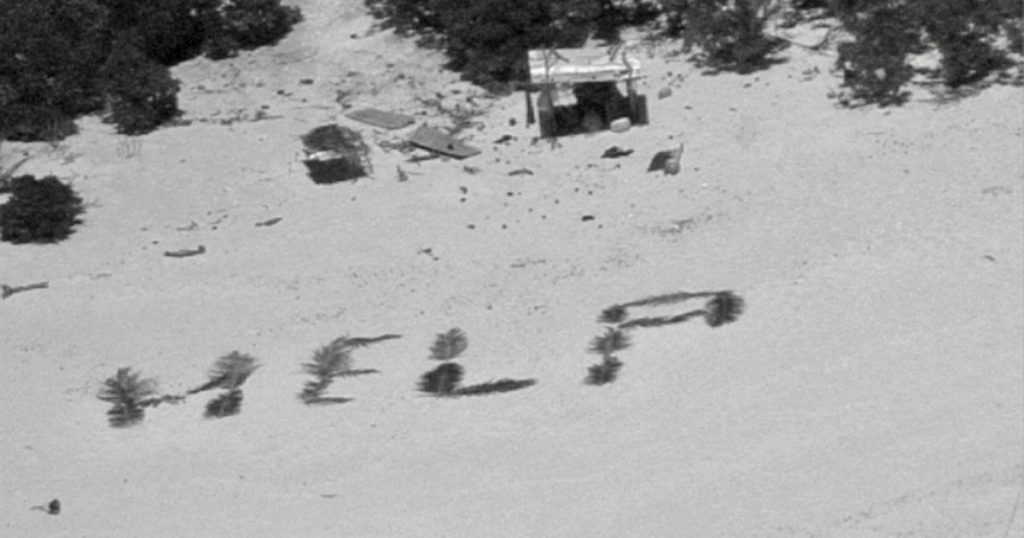Three mariners in their 40s were stranded on Pikelot Atoll in the Pacific for over a week after setting out on a voyage from Polowat Atoll in a 20-foot open skiff on Easter Sunday. The Coast Guard in Guam received a distress call from a relative when the men did not return as expected on April 6. A joint search and rescue operation by the U.S. Coast Guard and Navy was launched, spanning over 78,000 square nautical miles. The mariners spelled out “HELP” on the beach using palm leaves, which led to their discovery by a U.S. Navy P-8 Poseidon aircraft eight days after they went missing.
The Poseidon aircraft crew dropped survival packages to the stranded mariners until further assistance could arrive, and a Coast Guard cutter was deployed to conduct the rescue operation. The following day, a Coast Guard aircraft from Hawaii dropped a radio to establish communication with the men, who confirmed they were in good health and had access to food and water. The mariners reported that their boat had been damaged, and its engine was broken. The USCGC Oliver Henry reached Pikelot Atoll the next day and successfully transported the men back to Polowat Atoll.
Lt. Chelsea Garcia, the search and rescue mission coordinator, commended the mariners for their ingenious act of spelling out “HELP” on the beach, which was pivotal in guiding the rescue efforts directly to their location. Lt. Cmdr. Christine Igisomar, another coordinator, highlighted the enduring partnership and mutual respect between agencies that contributed to this successful rescue mission. This incident marked the second time in four years that mariners were rescued from Pikelot Atoll after spelling out a distress signal on the beach.
In 2020, three men were rescued from Pikelot Atoll after writing a giant “SOS” sign in the sand, which was spotted by Australian and U.S. aircraft. The successful rescue of these mariners emphasizes the importance of vigilance and resourcefulness in survival situations at sea. The stranded sailors’ ability to attract attention with their distress signals on the beach played a crucial role in their eventual rescue. The coordination between various agencies, including the Coast Guard and Navy, contributed to the timely and safe recovery of the mariners. The resilient spirit and determination of these individuals are a testament to the endurance and survival skills required in challenging maritime situations.


